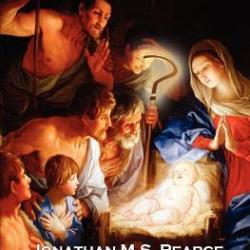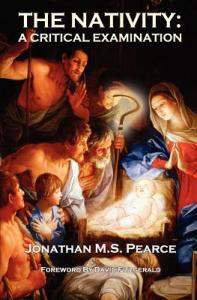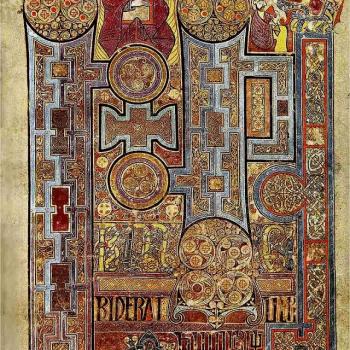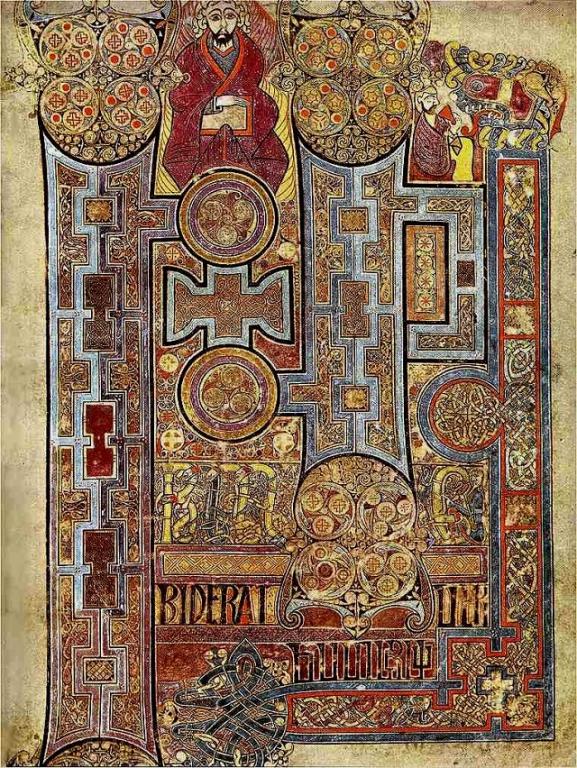I will be resolving all of the alleged “contradictions” from the web page entitled “194 CONTRADICTIONS, New Testament.” It’s perpetually striking to observe how many of these are obviously not logical contradictions, and how very easy they are to refute (many being patently and evidently absurd). A few here and there do seem to be genuinely perplexing (at first glance) and require at least some thought and study and serious examination (they save my patience). But all are ultimately able to be (in my humble opinion) decisively resolved. Readers can decide whether I succeed in my task or not, in any given case. My biblical citations are from RSV. The words from the web page above will be in blue.
See further installments:
Refutation of 194 Biblical “Contradictions” (#1-25) [4-5-22]
Refutation of 194 Biblical “Contradictions” (#26-50) [4-6-22]
Refutation of 194 Biblical “Contradictions” (#51-75) [4-7-22]
Refutation of 194 Biblical “Contradictions” (#76-100) [4-8-22]
Refutation of 194 Biblical “Contradictions” (#101-125) [4-8-22]
Refutation of 194 Biblical “Contradictions” (#151-175) [4-11-22]
Refutation of 194 Biblical “Contradictions” (#176-194) [4-11-22]
*****
126) At the time of the ascension, there were about 120 brethren. Acts 1:15.
At the time of the ascension, there were about 500 brethren. 1 Cor.15:6.
Acts doesn’t say that is the entire number of Christians in the world; only the amount in that place, who were living together. It’s sheer speculation to assert otherwise. Jesus appeared for forty days after He rose again (Acts 1:3), and so 500 Christians could have easily existed by the end of that period, seeing how wildly enthusiastic the early Christians were to spread the Good News of His resurrection. 500 doesn’t contradict 120, as long as the latter is not stated to be the sum total of all Christians. Paul doesn’t say 500 is the total, either, but we know there were at least that many before the Ascension took place.
127) The moneychangers incident occurred at the end of Jesus’ career. Mt.21:11,12.
The moneychangers incident occurred at the beginning of Jesus’ career. Jn.2:11-15.
Eric Lyons of Apologetics Press answers this:
There were two temple cleansings.
Why not? Who is to say that Jesus could not have cleansed the temple of money-hungry, hypocritical Jews on two separate occasions—once earlier in His ministry, and again near the end of His life as He entered Jerusalem for the last time? Are we so naïve as to think that the temple could not have been corrupted at two different times during the three years of Jesus’ ministry? Jesus likely visited the temple several times during the last few years of His life on Earth (especially when celebrating the Passover—cf. John 2:13,23; 6:4; 11:55), likely finding inappropriate things going on there more than once. . . .
[T]he different details recorded by John likely are due to the fact that we are dealing with two different temple cleansings. Only John mentioned (1) the oxen and sheep, (2) the whip of cords, (3) the scattering of the money, (4) Jesus’ command, “Take these things away,” and (5) the disciples’ remembrance of Psalm 69:9: “Zeal for Your house has eaten Me up” (2:17). Furthermore, John did not include Jesus’ quotation of Isaiah 56:7 [“my house shall be called a house of prayer”], which is found in all three of the other accounts, and stands as a prominent part of their accounts of the temple cleansing. (“Chronology and the Cleansing of the Temple”, 26 May 2004)
128) Zacharias was the son of Jehoida, the priest. 2 Chr.24:20.
Jesus said that Zacharias was the son of Barachias. Mt.23:35. (Note: The name Barachias or Barachiah does not appear in the OT.)
In the Bible, people often had multiple names, and people were also not infrequently called “son of so-and-so” when in fact they were a grandson. Those are two possible explanations of this. But I think the more plausible explanation is that Jesus was referring to the prophet Zechariah, in saying, “that upon you may come all the righteous blood shed on earth, from the blood of innocent Abel to the blood of Zechari’ah the son of Barachi’ah, whom you murdered between the sanctuary and the altar.” It was a sort of “beginning and end / A to Z” saying, seeing as Zechariah was perhaps the last prophet of Old Testament times. How he was murdered is not in the OT, but that could have been a Jewish tradition, or simply known by Jesus in His omniscience (being God).
There are many Zechariahs mentioned in the Bible. So Jesus narrows in on the specific one He meant by giving his (presumed) father. Our beloved skeptic claims that the father’s name never appears in the Old Testament. This is untrue (sometimes spellings of names can slightly change, for various reasons):
Zechariah 1:1 . . . the word of the LORD came to Zechari’ah the son of Berechi’ah, son of Iddo, the prophet, . . .
Seems pretty clear, huh? Zechariah, son of Jehoiada lived some 400 years before Zechariah son of Berechiah. With an explanation this plain, I don’t think we need to probe this supposed “contradiction” any further.
129) The coming of the kingdom will be accompanied by signs and miracles. Mt.24:29-33; Mk.13:24-29.
It will not be accompanied by signs and miracles since it occurs from within. Lk.17:20,21.
Matthew and Mark are talking about the Last Days or Day of Judgment; the Second Coming. That’s one sense of the “kingdom” yes, but Jesus also uses it in the sense of referring to His first coming, and this is the case with Luke 17:20-21. There are many other indications of His use of the word with the same meaning. For example:
Matthew 12:28 But if it is by the Spirit of God that I cast out demons, then the kingdom of God has come upon you.
Mark 4:11 And he said to them, “To you has been given the secret of the kingdom of God, but for those outside everything is in parables;”
Luke 10:8-9 Whenever you enter a town and they receive you, eat what is set before you; [9] heal the sick in it and say to them, `The kingdom of God has come near to you.’
Luke 11:20 But if it is by the finger of God that I cast out demons, then the kingdom of God has come upon you.
“Apples and oranges”; hence, no contradiction. It must be frustrating for the skeptic who is systematically refuted by the Christian, but that’s how it goes.
130) The kingdom was prepared from the beginning. Mt.25:34.
Jesus said that he was going to go and prepare the kingdom. Jn.14:2,3.
It was “from the beginning” in the sense that God knew all about it: being out of time and knowing all things. To “prepare something” when it is about to be implemented is not the same thing as having known about the thing for a long time beforehand. So, for example, one of my two granddaughters is having her first birthday party tomorrow. Her parents are busy preparing for it. They have known that there would be such a party (for whatever children they had) from the time even before she was born (and we knew it, too). That’s not “contradictory” to preparing for it when the time arrives. This is one of the many “plain silly” charges in this relentlessly faulty and weak list.
131) Blasphemy of the Holy Spirit is an unforgivable sin. Mk.3:29.
All sins are forgivable. Acts 13:39; Col.2:13; 1 Jn.1:9.
Generally speaking, yes: all sins are forgivable. But as in most things, there is an exception. The blasphemy of the Holy Spirit is the rejection of God altogether, which in a sense is not “forgivable” because the person hasn’t repented and asked to be forgiven, by the definition of having rejected God. In that sense, it can’t be forgiven, because “it takes two.”
One could say, as an analogy, “all horses are able to drink from the stream. But I can’t force my horse to do so if it doesn’t want to or choose to do so. I can only bring it to the stream. There are things that are made impossible by the contrary will of the creature involved. God can offer the free gift of grace and salvation to all, but we have to accept it. He won’t violate our free will because He thought it was senseless to create robots who could only do wat He commanded. Once free will is present, rebellion is always possible and can’t be altogether avoided.
132) The ascension took place while the disciples were seated together at a table. Mk.16:14-19.
The ascension took place outdoors at Bethany. Lk.24:50,51.
The ascension took place outdoors at Mt. Olivet. Acts 1:9-12.
Mark is an example of what is called “compression” or “telescoping”: techniques which were common, especially in ancient literature, and sometimes appear in the Bible. The text simply “jumps to a future occurrence. It’s obvious that the disciples weren’t indoors watching the Ascension, for how could they see Jesus being “taken up into heaven” (Mk 16:19)?
Bethany is located on the Mount of Olives (I’ve been there). That takes care of all the alleged “difficulties” here!
133) The holy spirit was with John from before he was born. Lk.1:15,41.
The holy spirit was with Elizabeth before John’s birth. Lk.1:41.
The holy spirit was with Zechariah. Lk.1:67.
The holy spirit was with Simeon. Lk.2:25.
The holy spirit is obtained by asking. Lk.11:13.
The holy spirit did not come into the world until after Jesus had departed. Jn.7:39; Jn.16:7; Acts 1:3-8.
Nice try. So much effort there! The Bible has many passages about the Holy Spirit being especially present with holy and especially “chosen” people, in both Testaments. That explains the first four instances. Anyone can search “Holy Spirit” in the Bible and find many more. In Luke Jesus was referring to that and also anticipating what was to come: which was every Christian believer being indwelt with the Holy Spirit as a matter of course: from the time of baptism (John 3:5-6; Acts 2:38; 9:17-18; 1 Cor 12:13; Titus 3:5).
Acts 1 and 2 are about the Day of Pentecost: the beginning of the Christian Church and the ability of every Christians to be filled with the Holy Spirit. That’s the difference: not that no one ever had the Spirit before, but that all Christians could henceforth. This was what John 7:39 and 16:7 were referring to. This was “developing Christian theology” so to speak. Developments are not contradictory because they always build on what went before.
134) Sometimes God is responsible for unbelief. 2 Thes.2:11,12.
Sometimes Jesus is responsible for unbelief. Mk.4:11,12.
The devil causes unbelief. Lk.8:12.
God never causes unbelief. Note regarding the first passage above, in the verse before it, it was human rebellion that brought it about: “those who are to perish, because they refused to love the truth and so be saved” (2 Thess 2:10). Mark is an instance of sarcasm: very common in the Bible. Jesus was telling parables at first, because He knew they would be understood by those who want to understand (“If any man has ears to hear, let him hear”: Mk 4:23) and not by those who don’t (hence the sarcasm). It was a matter of the will and being open (Mt 7:7-8). Jesus always wants [any and all of] us to believe (Mt 23:37) and to be saved (Lk 19:10; Jn 12:47).
Yes, the devil will cause unbelief and try to tempt us and get us to fall, but only if we let him. The late great comic Flip Wilson had an ongoing joke based on that: “the devil made me do it.” People laughed at that. Why? Well, it’s because we instinctively know that that mentality is a cop-out: that the devil can only “make” us do what we choose to do by our free will. Ultimately, we are responsible for our actions. We stand before God in the end to give account for ourselves, and “the devil made me do it” won’t cut it when the game is up at that time.
135) Whoever hates his brother is a murderer. 1 Jn.3:15.
If anyone claims to love God but hates his brother, he is a liar. 1 Jn.4:20.
No one can be a disciple of Jesus unless he hates his brother. Lk.14:26.
1 John 3:15 expresses the principle (stressed in the Sermon on the Mount) that murder and every other sin have to start in our hearty first” in our thoughts and intentions. Law recognizes this based on degrees of guilt, based in turn on how premeditated and “voluntary” it was.
1 John 4:20 is about rank hypocrisy. One can’t love God and hate other people, because loving God includes in it obedience to His command to love all people, even our enemies.
Luke 14:26 is an instance of exaggeration or hyperbole: the typically Hebraic way of expressing contrast. Literally it means “if you love your brother more than Me [God] you can’t follow Me” [since that would be idolatry]. For more on this, see: Dr. David Madison vs. Jesus #1: Hating One’s Family? [8-1-19] / Madison vs. Jesus #5: Cultlike Forsaking of Family? [8-5-19].
As you can see, these “contradictions” [?????!!!!!] are “apples and oranges.” They have northing directly to do with each other.
136) Believers do not come into judgment. Jn.5:24.
All people come into judgment. Mt.12:36; 2 Cor.5:10; Heb.9:27; 1 Pet.1:17; Jude 14,15; Rev.20:12,13.
John 5:24 means that a believer will be saved (“has eternal life; he does not come into judgment, but has passed from death to life”). “Judgment” there has the specific meaning of “judged as worthy of damnation” or more broadly, “conviction” in a legal sense. But everyone will be judged in the wider sense of having to give account before God, Who then declares if we are saved or not. John 5:24 doesn’t conflict with that, so this is much ado about nothing.
137) Jesus says that, if he bears witness to himself, his testimony is true. Jn.8:14.
Jesus says that, if he bears witness to himself, his testimony is not true. Jn.5:31.
Eric Lyons of Apologetics Press tackles this one:
When Jesus conceded to the Jews the fact that His witness was “not true,” He was not confessing to being a liar. Rather, Jesus was reacting to a well-known law of His day. In Greek, Roman, and Jewish law, the testimony of a witness could not be received in his own case (Robertson, 1997). “Witness to anyone must always be borne by someone else” (Morris, 1995, p. 287). The Law of Moses stated: “One witness shall not rise against a man concerning any iniquity or any sin that he commits; by the mouth of two or three witnesses the matter shall be established” (Deuteronomy 19:15; cf. Matthew 18:15-17). The Pharisees understood this law well, as is evident by their statement to Jesus: “You bear witness of Yourself; Your witness is not true” (John 8:13). . . .
But why is it that Jesus said to the Pharisees at a later time that His “witness is true” (John 8:14)? The difference is that, in this instance, Jesus was stressing the fact that His words were true. Even if in a court of law two witnesses are required for a fact to be established (a law Jesus enunciated in verse 17), that law does not take away the fact that Jesus was telling the truth, . . . (“Was Jesus’ Witness ‘True’ or ‘Not True’?”, 26 April 2009)
138) Men can choose whether or not to believe. Jn.5:38-47.
Only God chooses who will believe. Jn.6:44.
We have free will to accept God’s free offer of grace and salvation or reject it, as I have discussed in many previous replies. John 6:44 is expressing a truth that goes alongside what I just wrote: that only by grace is anyone saved at all. God’s grace draws all person who are eventually saved, but we have to cooperate with it. If we do so, there is a sense in which both things are true: 1) “we’re saved because we repented and accepted God’s free gift” and 2) “all who are saved are ultimately saved due to the enabling power of God’s grace.” The denial of this grace alone doctrine is the heresy of Pelagianism (being saved by works), which was condemned early on in Church history, along with the relatively better (but still heretical) view of Semi-Pelagianism. If we reject God’s grace, that’s all on us, not on God, who gives sufficient grace for anyone who wishes to be saved.
139) None of Jesus’ followers would be lost. Jn.10:27-29.
Some of Jesus’ followers would be lost. 1 Tim.4:1.
This is basically a rehash of the idea in #86. See my reply to that in the fourth installment.
140) Jesus is the ruling prince of this world. Rev.1:5.
The prince of this world will be cast out. Jn.12:31.
This is a strained, implausible interpretation in the desperate effort to find a contradiction. As with most words in the Bible, this one can and does have different meanings and applications. John 12:31 refers to the devil, who is the ruler of this world-system or kosmos in Greek. Jesus says (in the same sense): “My kingship is not of this world” (Jn 18:36). Yet in the next verse He uses the first sense: “You say that I am a king. For this I was born, and for this I have come into the world, to bear witness to the truth.”
141) Jesus says all men will be saved. Jn.3:17.
Only 144,000 virgin men will be saved. Rev. 14:1-4.
John 3:17 means universal atonement: that all who wish to be — who are willing to be disciples of Jesus with all that that entails — can be saved. This is biblical teaching. Revelation 14 doesn’t teach that this was the sum total of all who are saved. It specifically calls them the “first fruits” (14:4); in other words, there are many more to come and these are only the “first batch.”
142) God wants all men to be saved. 1 Tim.2:3,4; 2 Pet.3:9.
God does not want all men to be saved. Jn.12:40.
See #86 in the fourth installment and my article on universal atonement. John 12:40 refers to the phenomenon of hardening hearts, which is very poorly understood. See my article explaining that, too. In fact, it is no proof at all of God supposedly not wanting all men to be saved.
143) Peter asks Jesus where he is going. Jn.13:36.
Thomas asks Jesus where he is going. Jn.14:5.
Jesus said that no one asked where he was going. Jn.16:5.
Erik Manning explains this:
Peter had a bit of a bodyguard complex and didn’t want to hear about Jesus taking off by himself. So when he asks the question in John 13:36 about where Jesus is going, he doesn’t get it.
And in John 14:1-5, Jesus talks about going to his Father to prepare places for them. Thomas asks a question, but it’s because he’s not picking up what Jesus is laying down. He doesn’t ask what Jesus means by any of these things. And we know Thomas is a bit slow on the uptake, as we find out later in John’s Gospel. Thomas and Peter were both thinking naturally.
We see that Jesus is disrupted with another question in John 14 but isn’t asked another question in John 15. Jesus so far has mentioned his departure, but then in John 15:22-16:4, he talks about persecution headed their way. You know, some heavy stuff. Now their hearts are sorrowful. They fall silent with sadness after being so inquisitive earlier.
It’s at 16:5 that Jesus is saying, “guys…you still don’t get it. You went quiet on me with all these hard sayings of persecution and me leaving. But I’m not leaving you alone. I’m sending the Spirit in my place. Now is the time to be asking questions again, but this time let’s be a little sharper and ditch the gloomy pessimism.”
After this, they interrupt Jesus again twice more in John 16, showing they still don’t understand what he’s talking about. Read John 16:17-19: . . .
Jesus then answers their questions, and finishes by saying “I came from the Father and have come into the world, and now I am leaving the world and going to the Father.”
The light bulb finally seems to turn on. They quit looking at earthly things and start to see the spiritual realities Jesus is talking about. In John 16:28-30 the disciples exclaim, his disciples said, “Ah, now you are speaking plainly and not using figurative speech!Now we know that you know all things and do not need anyone to question you; this is why we believe that you came from God.” Jesus answered them, “Do you now believe?“
The metaphors are over in their minds. Jesus is now speaking clearly. They fell silent after some heavy sayings from Jesus, but now it’s dawning on them after Jesus prompts them to probe further. . . .
Only when we leave no room for conversational nuance would we have to conclude Jesus had a mental lapse or that something strange is going on with the writer of John. (“Busting One of Bart Ehrman’s Favorite Bible Contradictions”, Cross-Examined.Org, 8-12-20)
144) Jesus lost only one disciple. Jn.17:12.
Jesus lost no disciples. Jn.18:9.
This is yet another rehash of #86 in the fourth installment. I don’t need to re-answer what I’ve already answered.
145) Jesus came into the world to bear witness to the truth. Jn.18:37.
The truth has always been evident. Rom.1:18-20.
Yes, the second thing is true, but the same passage notes how men deliberately reject what they know to be true. So Jesus had to come to offer more evidence for the truth and to bear witness to the character of God. That goes beyond what Romans 1 was addressing: which was only “his eternal power and deity” as evident “in the things that have been made” (1:20). Jesus revealed much more than that. Some truth about God has always been evident in His creation; Jesus brought a much fuller revelation of spiritual truth.
146) During his first resurrection appearance, Jesus gave his disciples the holy spirit. Jn.20:22.
The holy spirit was given to the disciples after his ascension. Acts 1:3-8.
This is a variation of #133 above.
147) The world could not contain all that could be written of Jesus. Jn.21:25.
All was written. Acts.1:1.
Acts 1:1 is a general statement. Luke was saying that his Gospel dealt with “all that Jesus began to do and teach” in a broad sense. We do this all the time in how we use language today. We might say, for example, “I’ve been all over the world.” No doubt there are several dozen countries where we haven’t been. This is understood by the hearers, who know that it is a broad, generalized statement. Or a woman says, “I’ve been unhappy all of my life.” Are we to understand that literally for every second she was unhappy? No. It’s understood that it means, “unhappiness is a recurrent problem and dominant theme in my life that I can’t seem to shake off or resolve.”
Thus, analogously, Acts 1:1 is general and broad, whereas John 21:25 exaggerates to make the point that “there is a lot more material out there about Jesus than what I have recorded.” There is no conflict, once the different use of language is understood, just as we do all the time in life in interpreting people using literal or non-literal language. Usually context helps us understand which is being employed. It’s the same in the Bible.
148) Obey the laws of men for it is the will of God. 1 Pet.2:13-15.
The disciples disobey the council. Acts 5:40-42.
149) Obey God, not men. Acts 5:29.
Obey men. It is God’s will. Rom.13:1-4; 1 Pet.2:13-15.
There is always an exception to the rule. Peter gave the general good principle that — all in all — we obey laws and governments and rulers. But the Jewish council in Acts laid down an unjust law that no Christian could follow: “they . . .charged them not to speak in the name of Jesus.” Early Christians were murdered by the Roman government because they wouldn’t swear an oath to Caesar that violated their consciences. We mustn’t do the latter, and that sometimes means going against laws. Many laws have been unjust and wicked, such as those upholding slavery and legalizing childkilling and infanticide, along with a host of other immoral practices that laws sometimes protect and sanction.
150) God hated Esau and loved Jacob even before they were born. Rom.9:10-13.
God shows no partiality and treats all alike. Acts 10:34; Rom.2:11.
Romans 9 has to be properly understood. See my article on that.
***
Practical Matters: Perhaps some of my 4,000+ free online articles (the most comprehensive “one-stop” Catholic apologetics site) or fifty books have helped you (by God’s grace) to decide to become Catholic or to return to the Church, or better understand some doctrines and why we believe them.
Or you may believe my work is worthy to support for the purpose of apologetics and evangelism in general. If so, please seriously consider a much-needed financial contribution. I’m always in need of more funds: especially monthly support. “The laborer is worthy of his wages” (1 Tim 5:18, NKJV). 1 December 2021 was my 20th anniversary as a full-time Catholic apologist, and February 2022 marked the 25th anniversary of my blog.
PayPal donations are the easiest: just send to my email address: [email protected]. You’ll see the term “Catholic Used Book Service”, which is my old side-business. To learn about the different methods of contributing, including 100% tax deduction, etc., see my page: About Catholic Apologist Dave Armstrong / Donation Information. Thanks a million from the bottom of my heart!
***
Photo credit: mohamed hassan (2-22-21) [public domain / Pxhere.com]
***
Summary: A Bible skeptic has come up with 194 alleged biblical “contradictions” (usually recycled from old lists). I am systematically going through the list and refuting each one.























